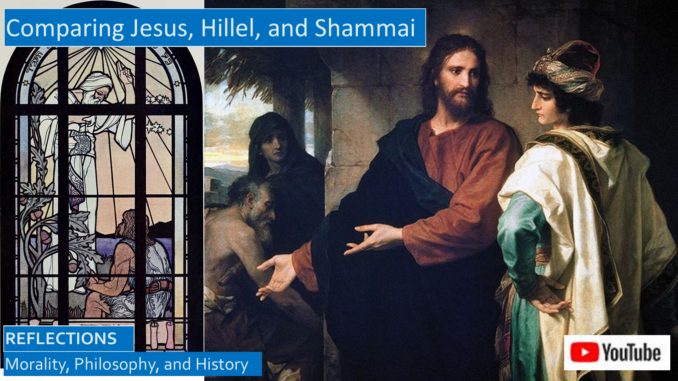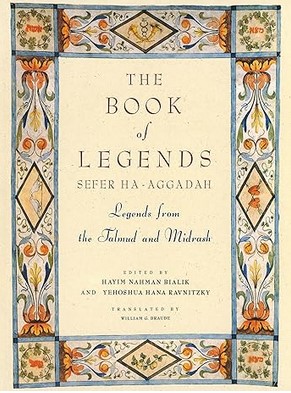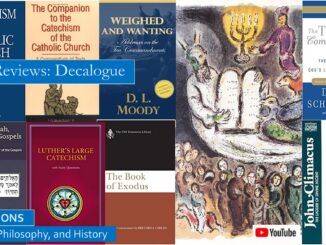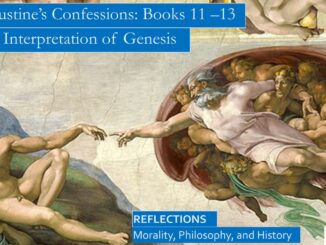
We discovered to our delight more stories and sayings of Hillel and Shammai in The Book of Legends, a handy one volume recitation of some key moral teachings from the Talmud and Mishnah.
Hillel the Elder, when he was a student, did not earn much, and he gave half of what he earned to the watchman at the House of Study to listen to the teachings of Shemaiah and Avtalion. Once when he was out of work, he had nothing to give to the watchman, who would not let him in to study, so he climbed onto the roof to listen to the lessons through the skylight. This day was a Sabbath eve in the winter solstice, and it snowed.
“When the dawn rose, Shemaiah said to Avtalion, ‘Every day this house is bright with light, but today it is dark. Is the day cloudy?’” “They climbed the roof and found Hillel, covered in three cubits of snow. They removed the snow, bathed and anointed him, and, as they seated him in front of an open fire, they said, ‘This man deserves to have the Sabbath profaned on his behalf,’”[1] since the Sabbath can be broken to save a human life.
Our YouTube video combines our three blogs on Hillel, Shammai, and Jesus: https://youtu.be/ygxn2qqGnOI


The enthusiasm shown by Hillel to learn the Torah reminds us of the story of Zacchaeus in Luke 19:
“There was a man named Zacchaeus; he was a chief tax collector, and rich. And he sought to see who Jesus was, but could not, on account of the crowd, because he was small of stature. So, he ran on ahead and climbed up into a sycamore tree to see him, for he was to pass that way. And when Jesus came to the place, he looked up and said to him, ‘Zacchaeus, make haste and come down; for I must stay at your house today.’”[2]
There are several stories that teach us how to bring out the best rather than the worst in those whose lives we touch.
Once Hillel’s wife had finished preparing a meal for Hillel and a guest, when a “poor man came by, stood at Hillel’s doorway, and said, ‘I am scheduled to marry today and have no provisions whatsoever.’ Hearing that, Hillel’s wife took the entire mean and gave it to the poor man. Then she kneaded fresh dough, cooked another pot of stew, and when it was ready, placed it before Hillel and his guest. Hillel asked, ‘My dear, why did you not bring it out sooner?’ She told him what happened. He said, ‘My dear, in asking about the delay, I meant to judge you not on the scale of guilt but on the scale of merit, because I was certain that everything you did, you did for the sake of Heaven.’”[3]
This is an important lesson for us to bring out the best in those who are close to use, rather than bringing out the worst. We do this by thinking the best of those close to us, rather than the worst; by encouraging their strengths, while downplaying their faults. As the Church Fathers teach us, rather than judging our neighbors while making excuses for own faults, we should rather judge our own faults while instead making excuses for our neighbors.
This is another story where Hillel wants to see the beauty in all new brides:
“Our masters taught: How does one praise a bride while dancing attendance upon her? The school of Shammai says, Describe the bride as she is. The school of Hillel says, Describe the bride as beautiful and full of grace. The school of Shammai retorted to the school of Hillel, But suppose she is lame or blind. Is one to say, ‘O bride, beautiful and full of graced,’ seeing that the Scripture declares, ‘Keep thee far from a false word?’ The school of Hillel replied to the school of Shammai: In your opinion, if a man has made a bad purchase in the marketplace, should a friend praise it or belittle it? Surely, he should praise it to his face. Hence, the sages infer that a man should always endeavor to be pleasant to other people.”[4]
Protecting the reputation of your neighbor is preferred to telling a truth that does not need to be told that will damage his reputation.
We have a saying from Shammai that sounds like his friend Hillel:
“Shammai said: Receive all men with a cheerful countenance. What does this mean? It means that if a man presents the most precious gifts in the world to his fellow but with a sullen and downcast countenance, Scripture regards that man as though he presented nothing at all to his fellow. On the other hand, he who receives his fellow with a cheerful countenance, even if he gives him nothing, Scripture accounts it to him as though he had presented his fellow with the most precious gifts in the world.”[5]
Hillel warns us against the dangers of envy, and extols the study of Torah:
“Hillel used to say: The more flesh, the more worms; the more property, the more anxiety; the more wives, the more witchcraft; the more bondwomen, the more lewdness; the more slaves, the more thievery. On the other hand, the more study of Torah, the more life; the more sitting down to study and contemplate, the more wisdom; the more counsel, the more understanding; the more charity, the more peace. He who has acquired a good name has acquired something that, unlike property, remains his own; he who has acquired words of Torah has acquired for himself life in the world-to-come.”[6]
This reminds me of the Parable of the Rich Fool told by Jesus:
“The land of a rich man brought forth plentifully; and he thought to himself, ‘What shall I do, for I have nowhere to store my crops?’ And he said, ‘I will do this: I will pull down my barns, and build larger ones; and there I will store all my grain and my goods. And I will say to my soul, Soul, you have ample goods laid up for many years; take your ease, eat, drink, be merry.’ But God said to him, ‘Fool! This night your soul is required of you; and the things you have prepared, whose will they be?’ So is he who lays up treasure for himself, and is not rich toward God.”[7]
“Hillel used to say: An empty-headed person does not dread sin, and ignorant person cannot be pious, a bashful person cannot learn, an irritable person cannot teach, and someone engrossed in trade cannot become a sage; and where there are no men, strive to be a man.”[8]
Our other blogs on Hillel, Shammai, and Jesus:
http://www.seekingvirtueandwisdom.com/hillel-and-jesus-reflections/
http://www.seekingvirtueandwisdom.com/comparing-hillel-and-shammai-to-jesus/
[1] The Book of Legends, Part II, Chapter 1.12, p. 204.
[2] https://www.biblegateway.com/passage/?search=luke+19%3A2-5&version=RSVCE
[3] The Book of Legends, Part II, Chapter 1.18, p. 206.
[4] The Book of Legends, Part V, Chapter 2.51, p. 619.
[5] The Book of Legends, Part V, Chapter 3.362, p. 679.
[6] The Book of Legends, Part V, Chapter 4.364, p. 721.
[7] https://www.biblegateway.com/passage/?search=luke+12%3A16-21&version=RSVCE
[8] The Book of Legends, Part VI, Chapter 4.79, p. 815.




4 Trackbacks / Pingbacks